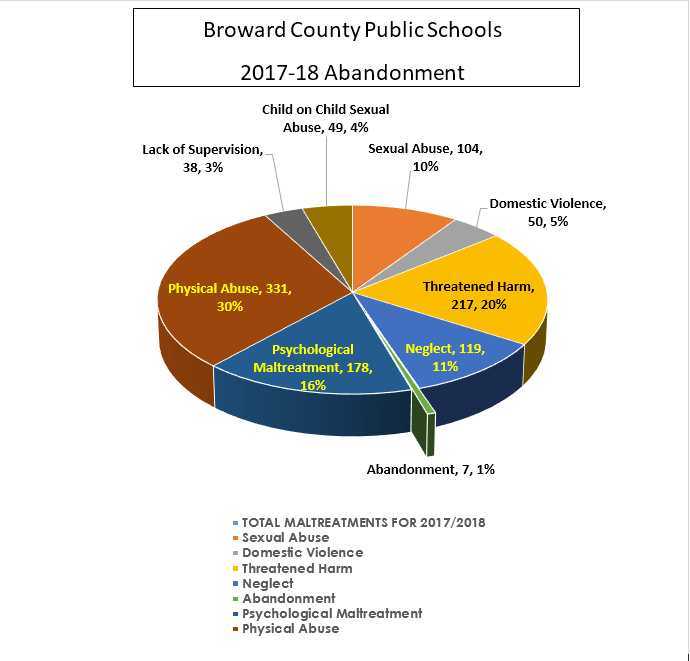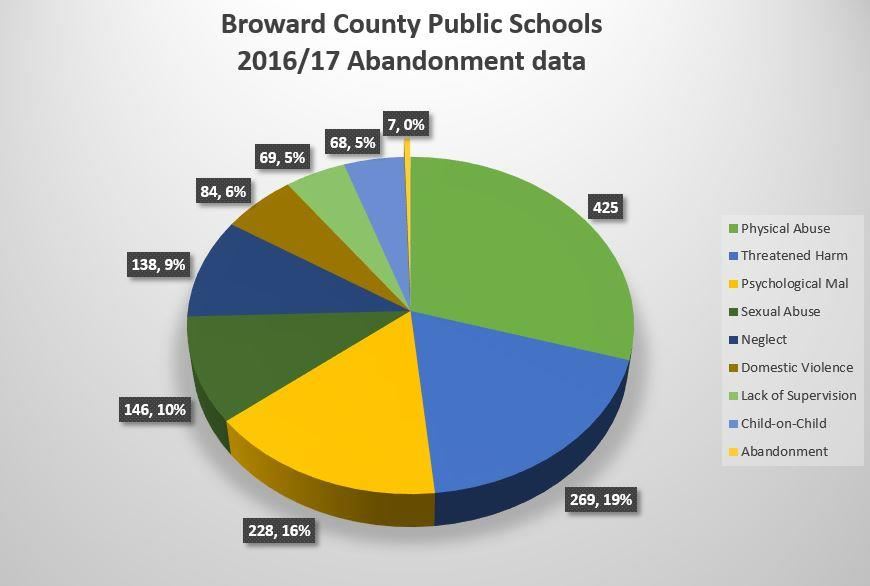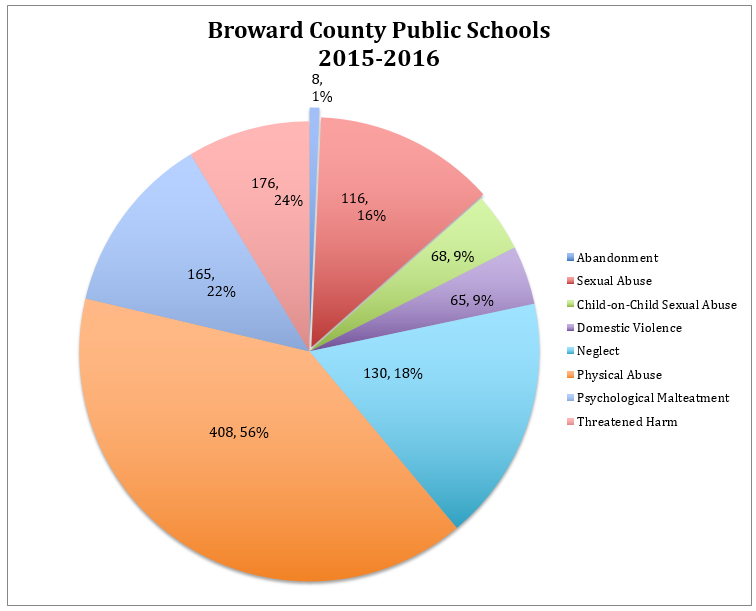Abandonment

Abandonment
-
Definition
As stated in Florida Statute 39, “abandoned” means a situation in which the parent or legal custodian of a child or, in the absence of a parent or legal custodian, the caregiver responsible for the child’s welfare, while being able, makes no provision for the child’s support and makes no effort to communicate with the child, which situation is sufficient to evince a willful rejection of parental obligations. If the efforts of such parent or legal custodian, or caregiver primarily responsible for the child’s welfare, to support and communicate with the child are, in the opinion of the court, only marginal efforts that do not evince a settled purpose to assume all parental duties, the court may declare the child to be abandoned. The term “abandoned” does not include an (abandoned) newborn infant as described in s. 383.50, a “child in need of services” as defined in chapter 984 or a “family in need of services” as defined in chapter 984. The incarceration of a parent, legal custodian, or caregiver responsible for a child’s welfare may support a finding of abandonment.
Chapter 984 deals with truancy and minors who are considered to be ungovernable… children who refuse to obey the reasonable expectations of their parents or caregivers.
Chapter 383 establishes the means by which a parent of a newborn infant (up to 7 days after birth) may leave the infant at a hospital or fire department without giving identifying information and without being subject to charges of neglect or abandonment.
-
Indicators
Abandoned children come to schools’ attention in a variety of ways. Some examples that have been encountered in our school district are:
- An eight year old girl who arrived at school on the bus with a packed suitcase and a note from Mom “giving” her to the teacher
- A 7th grade girl who went home to discover that her family moved away during the school day and left her behind
- An 11th grade boy whose family went off on vacation and left him without access to his home
- A fifteen year old girl who was pregnant and forced to leave the home due to the parent/caregiver’s unwillingness to accept the situation or help the child
- A teenage boy or girl who is told to “Get out and don’t come back!”
Usually, school personnel learn of these situations from students’ statements, notes or calls from the departing parents/caregivers, or from neighbors or extended family members who become aware of the circumstances and contact the school.
-
Data
In the 2017-2018 school year less than one percent of the reports made by Broward County Public Schools employees to the Florida abuse hotline involved abandonment.



-
Resources
The first resource for suspected neglect is use of self. As discussed on the data page, school personnel should first determine whether the parent is financially able to meet the child’s basic needs. When financial considerations are present, referral to free services is sometimes possible. Also, many programs and services have sliding scale fees, and may be feasible for parents to use at a lower cost. For medical concerns, schools that have a health clinic may consult with the nurse. Other schools have access to a school nurse through the Broward County Health Department. Some schools have a partnership with a hospital district or other health provider. Consult with these medical personnel about referral for needed services. Student support personnel at school will assist with referral to appropriate resources for families with financial need. They may:
- Assist families to obtain food from a food bank
- Refer the family for food stamps, Medicaid, SSI, and other governmental programs
- Help the family obtain clothing from the district clothing bank
- Refer to programs that provide shoes, eyeglasses, dental needs, orthopedic needs
- Refer to mental health or substance abuse programs.
When financial need does not seem to be present, and basic needs are not met, suspected neglect is reported to the Florida abuse hotline: 1-800-96-ABUSE. Child protective investigators have special resources, such as referral for subsidized child care, to assist families with risk factors for neglect. They also may refer families to a program operated by Henderson Mental Health Center and co-located with the BSO Child Protective Investigations Section. This program will engage families in a helping relationship and follow-up to be sure that resources are accessed
-
TO REPORT CHILD ABUSE, CALL 1-800-96ABUSE

